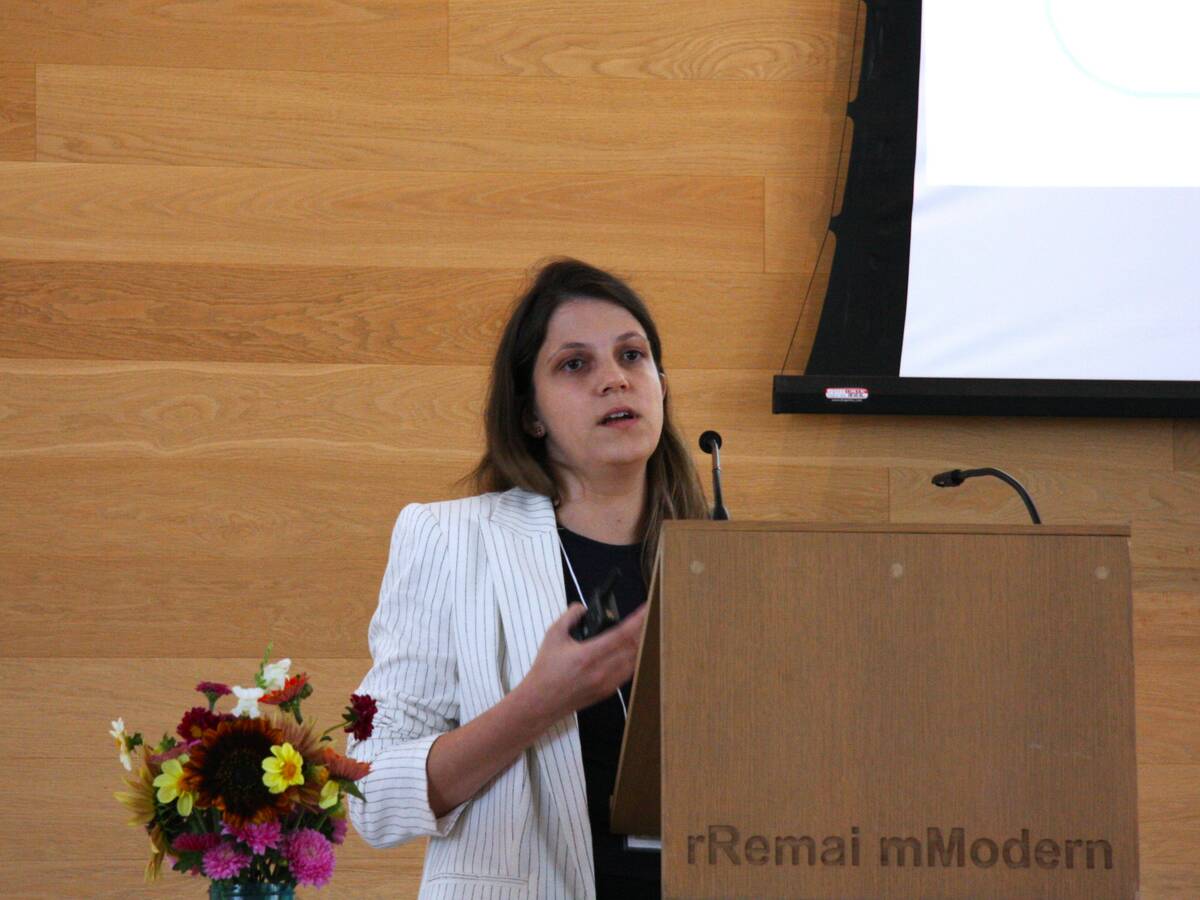Maple syrup candy is detained by customs agents and unshelled pecans bound for sale in Manitoba are late arriving from Mexico. It’s just another day in the business world for the Mexitoba Exchange, a 4-H company that teaches youth about the challenges of the import-export business.
The international youth entrepreneurship project is new in Manitoba 4-H, with 10 members signing up to test their business smarts this past year.
Justin Overand, 17, and Corina Turner, 20, are longtime 4-H members who have dabbled in 4-H projects from woodworking to photography to home economics. This brush with business is a first for both.
Read Also

Fusarium head blight mycotoxin detector in the works
A PhD student at the University of Saskatchewan has been working on developing a method of detecting fusarium damaged kernels to ease the struggles of producers, agronomists and industry.
Overand said the business experience has taught him about relaxed Mexican business practices and dubious assurances from trucking companies.
“I learned a lot of patience,” said Overand, a member of the Elkhorn 4-H Club. On-line meetings bring members together but can be frustrating when not all can log on.
Overand said the trucking firm they hired did not expect any problems with the shipments moving across the border. The candy suckers, however, were not permitted to enter, so Mexitoba is awaiting their return along with a refund from the trucker.
Suckers and pecans will now have to be sold in Manitoba unless another product is chosen and shipped south. Time is limited, with the project expected to wind down for summer holidays at the end of the month.
Drawing on skills learned in starting up a business, Overand formed a photography company on his own last summer.
Turner, of the Killarney 4-H Home Ec Club and 4-H ambassador program, is completing an agriculture degree at the University of Manitoba. This year, she received a $1,000 scholarship based on her idea to set up a farm safety day in Killarney.
4-H has taken her to Africa and Washington. She is also one of four 4-Hers selected to visit Durango, Mexico, this August to meet her Mexitoba business associates. A contingent of Mexicans will also visit Manitoba if funding can be found.
She said the entrepreneur project teaches youth how to start a company, create business plans and develop knowledge in trading. The 4-Hers work with mentors like the Mennonite Central Committee and business leaders.
Mexitoba also met with the Mexican minister of agriculture during his trip to the province. They discussed the Mexican climate, business practices and culture and received advice on suggested products to import and export.
For Turner, the project also gave her much-needed computer knowledge.
Unsure of her future plans, she said these business skills can be applied in any job, including her summer employment as a canola sales representative.
She hopes the Mexican trip will help her to learn more Spanish, meet her associates and indulge in another culture.
“I want to do the things the way they do for two weeks,” she said.
Project co-ordinator Leanne Nickel said the program is a great way to keep senior 4-H members involved. Computers and the internet allow for involvement among far-flung members.
“They’re comfortable with that; it’s a normal way of communicating for them,” she said of the project’s extensive use of chat rooms for on-line discussions and meetings.
“It’s a really new and interesting way to relate and teach 4-H members over the internet,” she said, noting its potential for other projects in future.
The entrepreneurship program represents a first-time partnership with another youth program, Junior Achievement, which focuses on developing leadership and business skills. 4-H also uses other resources like the Business Development Bank of Canada and brings in special guest speakers.
“It is designed to empower youth with business skills so they can return to rural areas and start a business,” said Nickel.
Upon completion of the project this month, Mexitoba will be liquidated.














